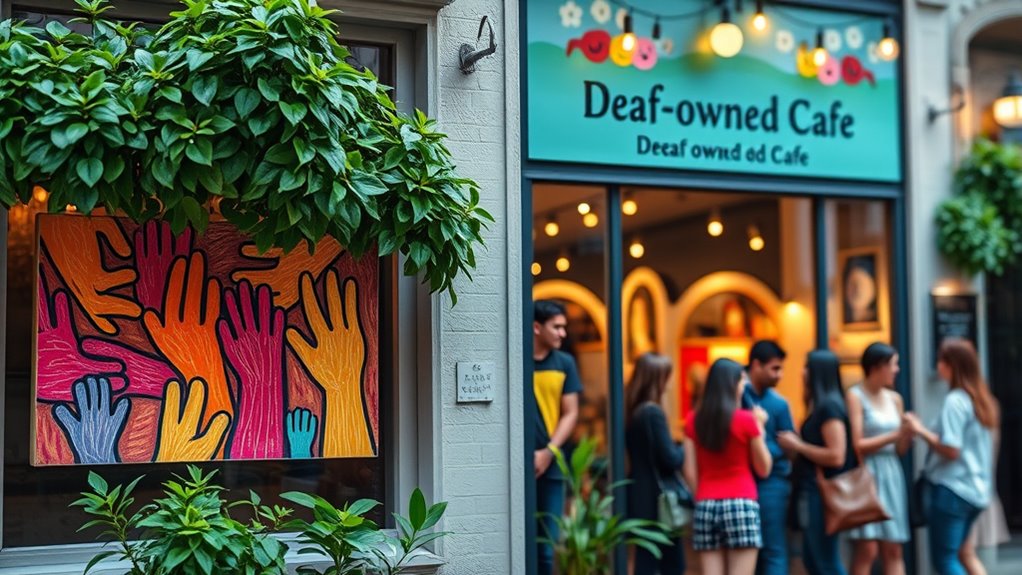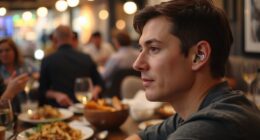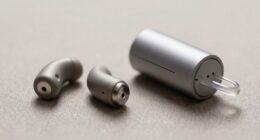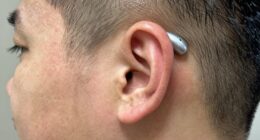Supporting Deaf-owned businesses lets you celebrate culture, boost visibility, and promote inclusivity. You can explore art shops highlighting Deaf symbols, fashion brands with ASL-inspired designs, or wellness services offering accessible self-care. Food and beverage companies often showcase Deaf pride through branding and community engagement, while photographers and home decor brands incorporate Deaf culture into their work. Keep exploring different ways to support and empower Deaf entrepreneurs as you discover inspiring stories and unique creations.
Key Takeaways
- Support Deaf artists by purchasing art, signage, and digital designs from platforms like Etsy, highlighting Deaf culture and identity.
- Choose inclusive fashion brands such as By Mara and Language Priority that feature ASL symbols and community pride in their apparel.
- Invest in accessible wellness products and services from businesses like Purple Rose Wellness and Eden and Clay that prioritize ASL communication.
- Patronize Deaf-owned food and beverage brands like Bake It With Sass and Big Bully Roasters to promote local culture and community engagement.
- Purchase photography, home decor, and sustainable products from Deaf entrepreneurs like Ali Mojahedi and Kelly Grace Photos that celebrate Deaf creativity.
Art and Creativity: Unique Visual Expressions
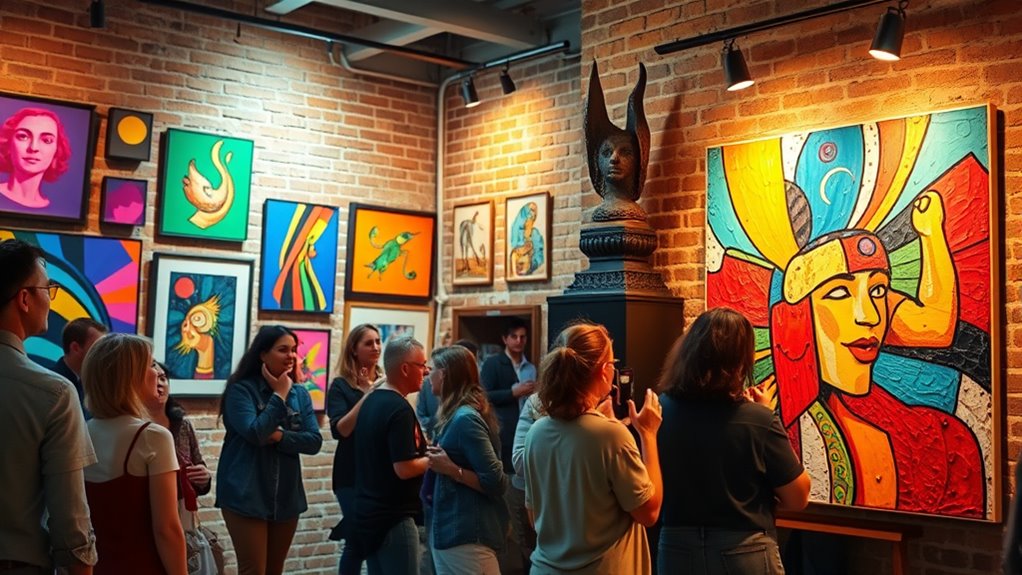
Deaf-owned art businesses showcase vibrant visual expressions that highlight Deaf culture and perspectives. As a Deaf artist or supporter, you’ll notice how these works incorporate sign language, ASL symbols, and cultural motifs, creating a powerful connection to Deaf identity.
From paintings to mixed media pieces, Deaf-owned art reflects the richness of Deaf experiences, promoting awareness and understanding. Artists like Viva Jess and Love Letters by Emily craft handcrafted wall art, stationery, and digital designs that celebrate Deaf culture.
Many of these businesses, such as Jena Floyd Art and J9 Art Shop, expand access through online platforms like Etsy, reaching a global audience. Supporting these Deaf-owned art ventures not only boosts visibility but also empowers Deaf artists to share their unique visual stories with the world.
Fashion and Accessories: Stylish and Inclusive Apparel
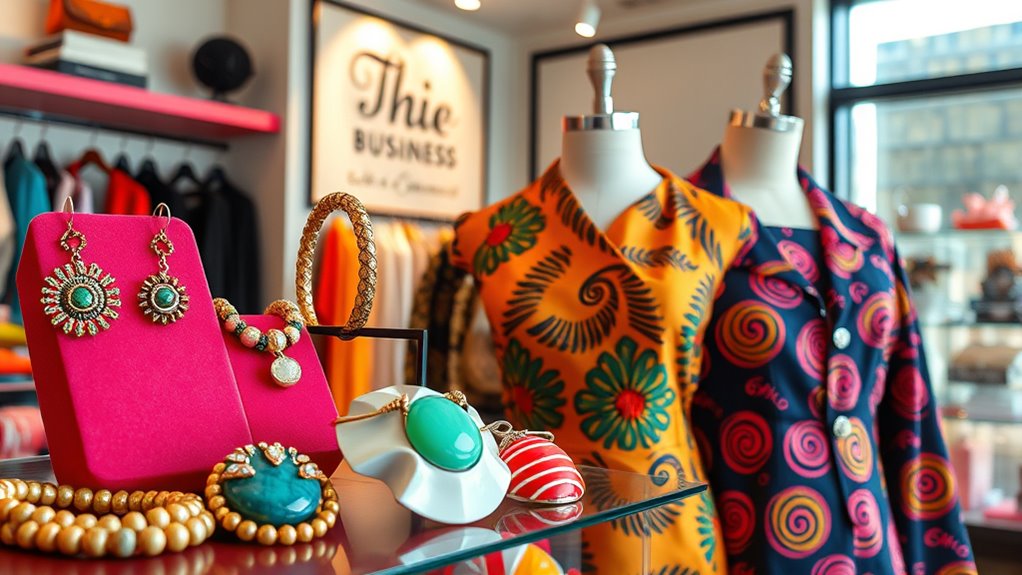
Art and creativity thrive in the Deaf community, inspiring innovative ways to express identity and culture. Deaf-owned fashion brands like By Mara and Language Priority create stylish, inclusive apparel that celebrates Deaf culture. These brands offer comfortable loungewear, hoodies, and T-shirts featuring meaningful slogans, awareness symbols, and icons that promote love and visibility.
Sign language clothing and accessories from brands like Orange by JS and Gorgeous Jupiter incorporate unique designs, such as dreamy color swirls and preservation flowers, catering to diverse styles. Many emphasize accessible fashion by using visual cues and ASL-inspired graphics, fostering community pride.
Supporting these businesses not only promotes Deaf entrepreneurship but also amplifies diversity, representation, and the rich cultural identity woven into every piece of stylish, inclusive apparel.
Wellness and Personal Care: Nurturing Mind and Body
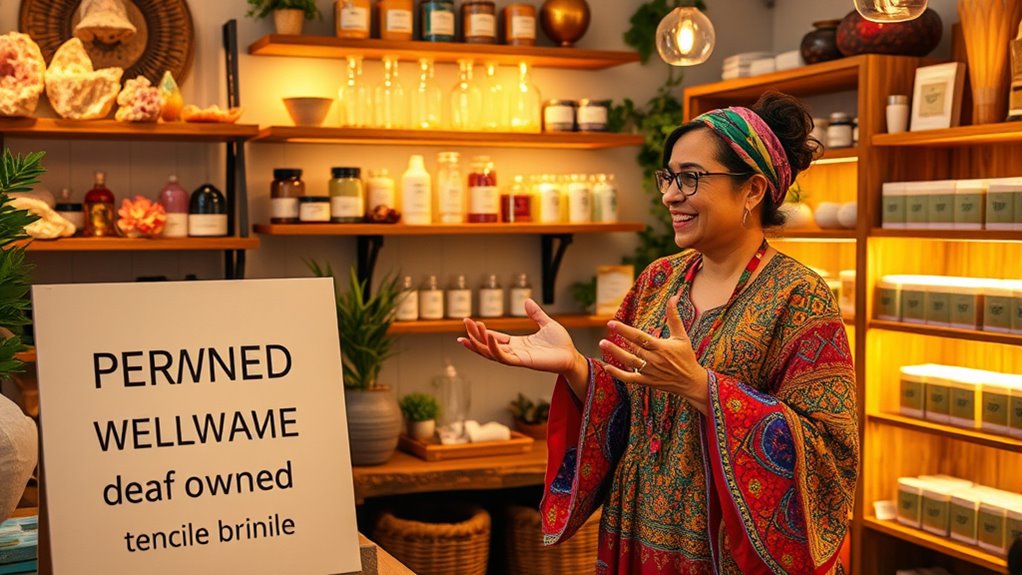
Many Deaf entrepreneurs are transforming wellness and personal care by creating products and services that prioritize accessibility and holistic well-being. Deaf-owned businesses like Purple Rose Wellness and Eden and Clay offer therapies, skincare, and self-care items designed to support mental health and physical relaxation.
They emphasize ASL accessibility through video consultations, online courses, and videos, ensuring the Deaf community can easily access information and support. Additionally, some businesses incorporate accessible communication methods to further enhance inclusivity. Recognizing the importance of emotional support can help these entrepreneurs develop offerings that truly meet the needs of their community.
Products such as organic syrups, candles, and handmade jewelry from brands like The Deaf Flower and Kova Kandle focus on natural ingredients and artisanal craftsmanship, promoting health and relaxation. Incorporating delivery and logistics solutions tailored to perishable items can help these businesses maintain product quality during transit. Utilizing industry trends can also help entrepreneurs stay competitive and innovative in the wellness market.
Entrepreneurs like Hotsy Totsy Haus develop sensory-friendly wellness items that foster inclusive self-care experiences.
Supporting these businesses helps nurture mind and body while empowering Deaf-led enterprises committed to community well-being. Additionally, some of these businesses benefit from wealth transformation strategies, enabling them to expand their reach and impact in the wellness industry.
Food, Baked Goods, and Beverages: Delicious Treats and Sips

Supporting Deaf entrepreneurs in the food and beverage industry means enjoying delicious treats and beverages while celebrating community pride.
Deaf-owned food businesses like Bake It With Sass offer a variety of baked goods, including cookies, cakes, and pastries, made with care and quality. Many of these businesses incorporate Deaf culture into their branding and marketing, creating a sense of identity and pride.
Many Deaf-owned beverage brands, such as Big Bully Roasters, serve locally roasted coffee and unique artisanal drinks that elevate your sensory experience. These entrepreneurs often focus on organic ingredients, creating health-conscious syrups, honey, and drinks that support wellness. Incorporating community engagement strategies allows these businesses to build stronger connections with their customers and promote cultural awareness.
Their branding reflects Deaf culture, promoting representation and community spirit through tasty treats and sips. Supporting these businesses helps foster economic growth and visibility for Deaf creators while enriching your community with authentic, flavorful options.
Additionally, embracing creative practice and experimentation in their branding and product offerings allows Deaf entrepreneurs to innovate and connect more deeply with their customers. Incorporating analytical cookies can help these businesses better understand customer preferences and improve their offerings over time.
Photography and Home Decor: Capturing Moments and Beautifying Spaces

Capturing special moments and enhancing your living space with unique decor are ways Deaf entrepreneurs are making a mark in photography and home aesthetics. Deaf-Owned Businesses like Ali Mojahedi Photography showcase Deaf Talent by capturing candid, intimate moments that tell authentic stories. These artists often incorporate local reviews and personal touches that resonate with clients’ experiences. Kelly Grace Photos preserves furry friends’ memories, adding a personal touch to your home decor. Viva Jess creates vibrant wall art, stationery, and graphic gifts that brighten interior spaces with bold designs. Alpine Florals offers nature-inspired decor by pressing mountain flowers into unique collages. Raine Collective features art and accessories crafted by deaf artisans, celebrating the Deaf Community’s creativity. These businesses use Sign Language and Deaf Talent to connect with clients and bring beauty and meaning to your home. Additionally, the environmental benefits of using sustainable and innovative materials in decor highlight the importance of eco-friendly practices that align with a commitment to sustainability. Incorporating sustainable materials in design not only supports eco-conscious initiatives but also adds a layer of authenticity and craftsmanship to the pieces. Furthermore, the use of skincare innovation like eye patches and ice masks by brands such as Patchology demonstrates the importance of trustworthiness and authenticity in products that promote health and well-being.
Frequently Asked Questions
Why Do Deaf People Prefer Deaf-Owned Businesses?
You might wonder why deaf people prefer deaf-owned businesses. They choose these because communication feels natural and effortless with sign language, eliminating misunderstandings.
Supporting these businesses also means they can connect with others who share their culture, fostering pride.
Plus, deaf-owned businesses understand their specific needs and offer personalized service, helping to create economic opportunities.
When you support them, you’re strengthening the community and promoting inclusivity and shared values.
Is It Difficult to Find Deaf-Owned Businesses?
Did you know only about 10% of small businesses are easily discoverable online? You might find it tricky to locate Deaf-owned businesses because they often lack widespread advertising and are primarily active on niche platforms.
Traditional directories rarely specify Deaf ownership, so you need to use specific keywords or community networks.
Communication barriers and limited marketing resources make these businesses harder to find, but with a bit of effort, you can support them effectively.
What Was One of the Examples of a Deaf-Owned Business Mentioned?
You’re asking for an example of a Deaf-owned business, and one great example is By Mara. This clothing company is founded by a Deaf individual and features iconic ILY designs on comfy tees and hoodies.
How Many Deaf-Owned Businesses Are in the US?
You wonder about the number of Deaf-owned businesses in the US. While exact figures are hard to pin down, it’s estimated that thousands of these businesses are actively operating across various industries.
Many are part of vibrant communities supporting arts, wellness, and services, contributing profoundly to local economies.
As awareness grows, more Deaf entrepreneurs are opening doors, creating a diverse and thriving landscape that celebrates Deaf culture and independence.
Conclusion
By supporting deaf-owned businesses, you’re not just making a difference—you’re revolutionizing the way the world celebrates creativity, resilience, and innovation. Every purchase fuels a movement that transcends boundaries, turning small acts into monumental change. Your support helps these incredible entrepreneurs shatter stereotypes, inspire generations, and redefine what’s possible. So, go ahead—embrace their stories, celebrate their talents, and be part of a powerful wave that transforms communities and changes lives forever.

